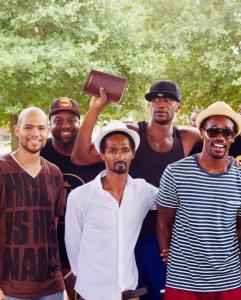In response, Robison made “Freedom of Speech Is Freedom to Preach” his new bumper sticker. He invited leaders like Pat Robertson, James Dobson, Mike Huckabee, Ralph Reed, and Jerry Falwell to a Freedom to Preach rally in a Dallas stadium. These men met backstage with a presidential candidate named Ronald Reagan and decided to back him. The religious right was born.
I had a chance to interview James Robison about those days. What began as a movement promoting freedom to preach veered off course. As Robison told me, “I opposed what was happening, and about maybe two years or three years into Reagan, if that long, I just pulled back into the shadows. I just disappeared. I heard the Lord say, ‘Serving is great. You go serve what I’m doing. You go serve the people that have sold out to me.’ And, buddy, I went to the mission fields of the world, and that’s where I have been.”
When that movement made seemingly every Christian concern a political issue, it created a backlash against Christian voices in the public square. As a general rule, younger Christians want no part of politics. And the world out there still sees Christians as a giant steamroller according to my research.
Christians and Politics
Listening to critics of Christianity, you would think we were marched in orderly lines. The truth is, even at the peak of the religious right, Christians never formed a unified front. Christians are anything but a homogeneous voting block. We are a messy mix of the entire political spectrum. You will find Christians wandering down four well-worn paths that Christians take when it comes to politics:
- Some fight. These folks rally the troops, wage the culture wars, elect candidates to office, put morality to a vote, and try to take back lost ground by punching forward.
- Some surrender. This group takes the opposite approach. Sensing that the battle is lost, they surrender the controversial aspects of Christian belief. They give up and give in hoping no one else gets hurt.
- Some escape. These people flee as far and fast as possible. They unplug from media, move out of the city, and protect their family from the disease of culture by hunkering down until Jesus comes back, which some are sure is to be soon.
- Some convert. This minority chooses to live as missionaries within the dominant culture, seeking the common good of all, living out biblical principles, and seeking to evangelize people and cultures so they are transformed.
These markedly different options mean that Christians often part ways when it comes to picking a political path to wander down. Nonetheless, many people outside the church think that Christians are all about imposing their dogma on others as we will examine in the next blog.












